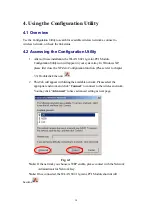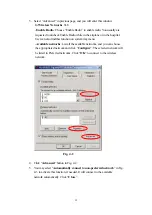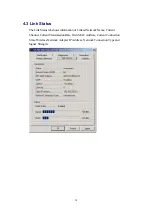
28
international standards. The organization publishes a number of journals, has many
local chapters, and several large societies in special areas, such as the IEEE Computer
Society.
Infrastructure Network
– An Infrastructure network is a group of computers or
other devices, each with a wireless adapter, connected as an 802.11 wireless LAN. In
infrastructure mode, the wireless devices communicate with each other and to a wired
network by first going through an access point. An infrastructure wireless network
connected to a wired network is referred to as a Basic Service Set (BSS). A set of two
or more BSS in a single network is referred to as an Extended Service Set(ESS).
Infrastructure mode is useful at a corporation scale, or when it is necessary to connect
the wired and wireless networks.
IP Address
– In the most widely installed level of the Internet Protocol(IP) today, an
IP address is a 32 – binary digit number that identifies each sender or receiver of
information that is sent in packet across the Internet. When you request an HTML
page or send e-mail, the Internet Protocol part of TCP/IP includes your IP address in
the message ( actually, in each of the packets if more than one is required) and sends it
to the IP address that is obtained by looking up the domain name in the Uniform
Resource Locator you requested or in the e-mail address you’re sending a note to. At
the other end, the recipient can see the IP address of the Web page requester or the
e-mail sender and can respond by sending another message using the IP address it
received.
IPCONFIG
– A utility that provides for querying, defining and managing IP
addresses within a network. A commonly used utility, under Windows NT and 2000,
for configuring networks with static IP addresses.
ISP
– An ISP (Internet service provider) is a company that provides individuals and
companies access to the Internet and other related services such as Web site building
and virtual hosting.
LAN
– A local area network (LAN) is a group of computers and associated devices
that share a common communications line and typically share the resource of a single
processor or server within a small geographic area ( for example, within an office
building).
MAC Address
– The MAC (Media Access Control) address is your computer’s




































